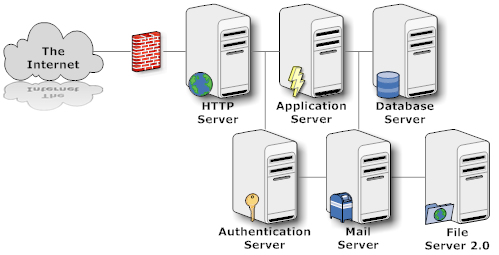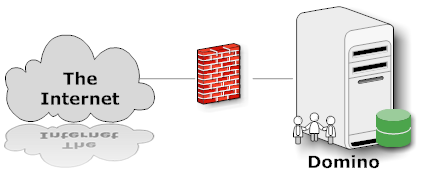Enemy of the <strike>state</strike> IT system #1 : complexity
As the saying goes the complexity of any system grows at the square of the components involved. We do live in a complex world, so you can shrug, surrender to the unavoidable and move on. Or you can take a closer look and discover differences in complexity. There is the complexity from the nature of the task at hand and there is the complexity we add in the way we approach the completion of the task. Order a meal in a restaurant can be straight forward or incredibly complex. You can call that " Essential Complexity" and " Accidental Complexity", terms coined by Fred Brooks over 20 years ago. His book The Mythical Man-Month  is a must read for any software engineer or normal mortal human dealing with software engineers. Brooks states that software isn't werewolfs, so there is no silver bullet. While I fully agree with his insights, I more and more doubt, that the second complexity is really " accidental". It is man made and IMHO quite deliberate. Of course we never need to assume malice where incompetence is sufficient to explain\*. Let us look at the setup of your average web application (and I skipped the provisioning and monitoring pieces, as well as the diverse interfaces to administrate all this):
is a must read for any software engineer or normal mortal human dealing with software engineers. Brooks states that software isn't werewolfs, so there is no silver bullet. While I fully agree with his insights, I more and more doubt, that the second complexity is really " accidental". It is man made and IMHO quite deliberate. Of course we never need to assume malice where incompetence is sufficient to explain\*. Let us look at the setup of your average web application (and I skipped the provisioning and monitoring pieces, as well as the diverse interfaces to administrate all this):

After careful counting that would make 6 servers or a complexity of 36. The setup is typical for Microsoft setups (Exchange, ActiveDir, Sharepoint, IIS, DotNet, SQL Server) as well as for Java setups (Apache HTTP, Tomcat/WAS, Samba, LDAP, DB2/MySQL, POP/IMAP) or your favourite scripting environment (just swap out Tomcat/WAS for the script of your choice). Not all of these servers need to be physical boxes or virtual images. They can be tasks running on one hardware. Make that high available (12 boxes) and you have a complexity of 144. Of course you could use Domino for your applications. The setup will look like this:

Of course to get there you have to challenge your believes:

After careful counting that would make 6 servers or a complexity of 36. The setup is typical for Microsoft setups (Exchange, ActiveDir, Sharepoint, IIS, DotNet, SQL Server) as well as for Java setups (Apache HTTP, Tomcat/WAS, Samba, LDAP, DB2/MySQL, POP/IMAP) or your favourite scripting environment (just swap out Tomcat/WAS for the script of your choice). Not all of these servers need to be physical boxes or virtual images. They can be tasks running on one hardware. Make that high available (12 boxes) and you have a complexity of 144. Of course you could use Domino for your applications. The setup will look like this:

Of course to get there you have to challenge your believes:
- Complexity is good
- Web systems need to be 3 tier
- A directory must be dedicated LDAP (Domino does LDAP, as does AD)
- Databases must be relational
- Only complex setups scale
- Only with [insert-your-favourite-language-here] web applications can be developed properly
- And then the Lotus Domino specific ones:
- Domino is legacy
- Domino doesn't scale
- NSF is not reliable
- Web development with Domino is complicated
Posted by Stephan H Wissel on 10 April 2009 | Comments (8) | categories: Show-N-Tell Thursday